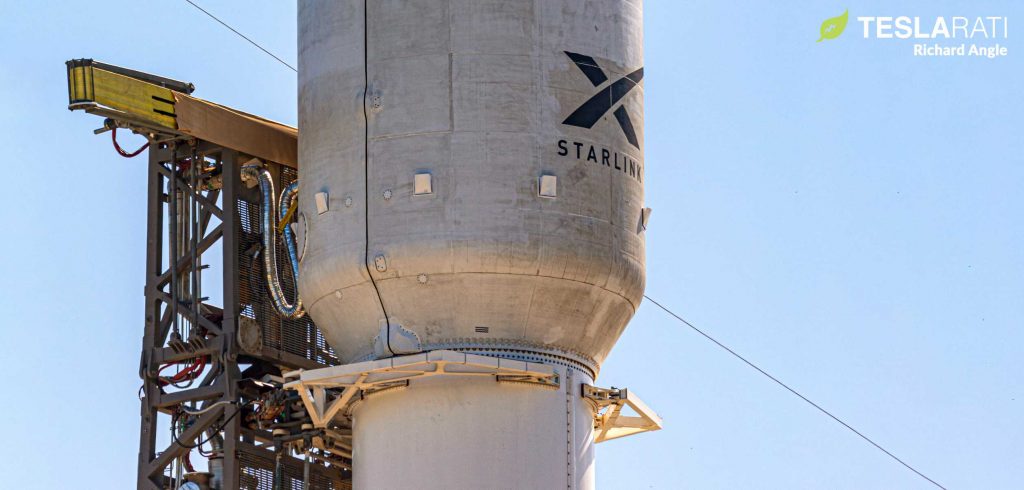SpaceX is less than a month into 2023, but CEO Elon Musk’s wildly ambitious goal of 100 launches in one year is already looking doable.
Announced last August, Musk’s 100-launch 2023 target followed goals of 52 – and then 60 – Falcon rocket launches in 2022. Both 2022 goals were incredibly ambitious, with 60 requiring SpaceX to almost double its previous annual launch record. But for the first time in its history, SpaceX not only met – but exceeded – its executives’ forecasts. The company launched 61 times in 2022, tying a four-decade-old Soviet record for the most launches of a single family of rockets in one year. Anywhere close to 100 Falcon launches in 2023 would crush that record.
Prior to 2022, however, SpaceX infamously struggled to hit the high bars set by its ever-optimistic executives.

High achievements; higher bars
In September 2017, Musk predicted [PDF] that SpaceX would launch 20 times in 2017 and 30 times in 2018. SpaceX eventually launched 18 times in 2017 and 21 times in 2018. In September 2019, COO Gwynne Shotwell predicted that SpaceX would launch up to 18 times by the end of the year. The company would only launch 13 Falcon rockets in 2019 – the only time in the last 12 years that SpaceX’s launch cadence has dropped year-over-year.
At the same conference, Shotwell – typically viewed as the adult in the room relative to Musk’s more chaotic management style – also estimated that SpaceX would launch up to 24 Starlink missions in 2020. SpaceX went on to launch 26 times total in 2020, 15 of which were for Starlink. Finally, in October 2020, CEO Elon Musk revealed a target of 48 SpaceX launches in 2021. Instead, SpaceX launched 31 Falcon rockets – an impressive accomplishment by any measure but still far from its internal target.
Only in 2022 did all of the puzzle pieces finally click together. Representing the payoff from years of buildup, SpaceX doubled the production of Falcon rocket stages and Starlink satellites, dramatically increased the availability of its drone ships and launch pads, and launched once every six days without a single failure.
(6)0 to 100
Ever the glutton for self-punishment, Musk responded to SpaceX’s success by raising 2023’s bar two-thirds higher than 2022’s in August. Instead of jinxing the company, SpaceX somehow sustained its high cadence through the end of the year and slightly surpassed Musk’s 60-launch goal.
In fact, the pace of SpaceX launches accelerated throughout 2022. SpaceX launched 13 times in the first quarter of 2022. In the fourth quarter of 2022, SpaceX launched 18 times – an increase of almost 40%. The same trend is visible on a smaller scale. In December 2021, SpaceX launched five times in one month for the first time in its history. SpaceX launched seven times (also a first) in December 2022.
One exceptional month does not necessarily translate into an exceptional year. However, SpaceX is on track to launch seven times in January 2023, implying that it could be the company’s new normal. When SpaceX first launched five times in one month in December 2021, it seemed unlikely that that would become its new normal. But SpaceX ultimately averaged more than five launches per month throughout 2022.
Time will tell if SpaceX can do the seemingly impossible twice in a row. For now, the company is off to a great start.


buy ivermectin 3 mg – carbamazepine 400mg ca order carbamazepine without prescription
buy generic accutane for sale – order accutane 10mg pill buy zyvox 600 mg generic
order amoxil without prescription – cheap generic amoxicillin ipratropium 100mcg usa
purchase azithromycin online cheap – purchase zithromax generic bystolic pills
buy omnacortil 10mg sale – order azipro pills purchase progesterone generic
order augmentin 375mg online cheap – oral augmentin buy cymbalta 20mg
vibra-tabs price – order monodox pill glucotrol 5mg price
generic clavulanate – order generic augmentin 625mg cymbalta 20mg cost
buy rybelsus 14 mg online – buy vardenafil without a prescription buy cyproheptadine 4mg generic
tizanidine brand – generic microzide 25 mg microzide usa
oral tadalafil 40mg – sildenafil online order cost sildenafil
cheap sildenafil pills – viagra 50mg brand buy cialis 10mg without prescription
atorvastatin 10mg generic – order atorvastatin 80mg online cheap buy prinivil
buy cenforce sale – oral glycomet 1000mg purchase glycomet online cheap
cost omeprazole 20mg – brand atenolol 50mg buy generic tenormin
clarinex buy online – priligy 60mg for sale cost priligy
cost cytotec – generic orlistat oral diltiazem
purchase zovirax without prescription – order acyclovir 400mg for sale rosuvastatin for sale
order motilium – how to buy tetracycline cyclobenzaprine 15mg sale
buy motilium 10mg generic – sumycin online buy cyclobenzaprine 15mg us
warfarin usa – metoclopramide pills buy generic losartan
cheap levaquin 250mg – avodart drug buy zantac 150mg online
purchase esomeprazole pill – order imitrex 50mg without prescription imitrex generic
buy generic mobic for sale – order flomax 0.4mg pills purchase flomax for sale
buy ondansetron tablets – aldactone tablet zocor 10mg us
buy cheap generic valacyclovir – purchase finpecia buy diflucan 100mg generic